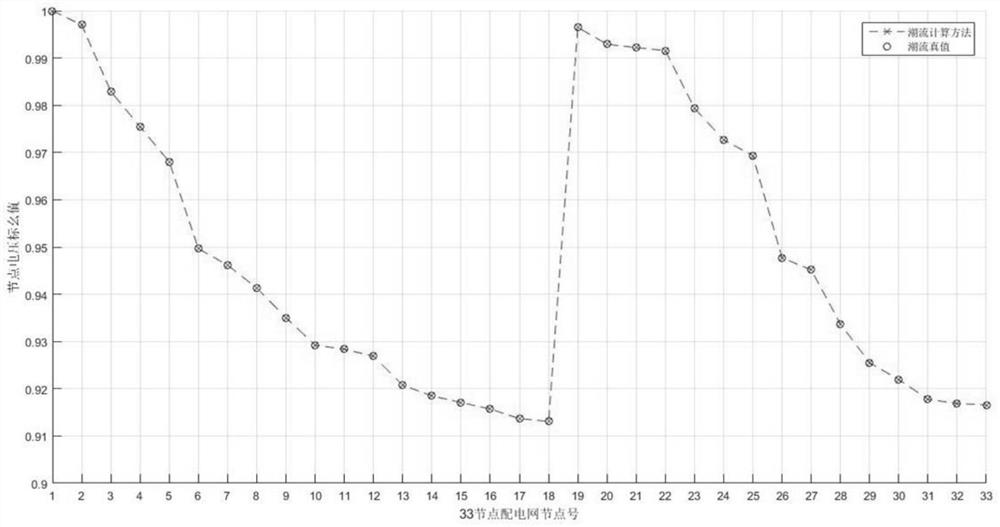A Power Flow Calculation Method for Distribution Network Simulation
A technology of power flow calculation and distribution network, applied in the field of simulated power flow calculation, can solve problems such as time-consuming calculation, complicated program design, and increased calculation time
- Summary
- Abstract
- Description
- Claims
- Application Information
AI Technical Summary
Problems solved by technology
Method used
Image
Examples
Embodiment Construction
[0091] The technical solution of the present invention will be further described in detail below in conjunction with the accompanying drawings.
[0092] Such as figure 1 Shown, the present invention comprises the following steps: comprises the following steps:
[0093] 1) Read the original data of the power distribution network, including node parameters and branch parameters;
[0094] 2) Form a network node admittance matrix according to the network topology;
[0095] 3) Set the initial value of the voltage of all PV nodes and PQ nodes as the balanced node voltage, and take the initial value of the voltage of all nodes as the balanced node voltage, that is, Set all PV nodes and PQ nodes active power deviation second order term sP i (0) =0, set the initial value of the loop variable c=0; where: Indicates the initial value of the abscissa component of the i-th node vector voltage, f i (0) Indicates the abscissa component of the vector voltage of the i-th node, e s Ind...
PUM
 Login to View More
Login to View More Abstract
Description
Claims
Application Information
 Login to View More
Login to View More - R&D Engineer
- R&D Manager
- IP Professional
- Industry Leading Data Capabilities
- Powerful AI technology
- Patent DNA Extraction
Browse by: Latest US Patents, China's latest patents, Technical Efficacy Thesaurus, Application Domain, Technology Topic, Popular Technical Reports.
© 2024 PatSnap. All rights reserved.Legal|Privacy policy|Modern Slavery Act Transparency Statement|Sitemap|About US| Contact US: help@patsnap.com










